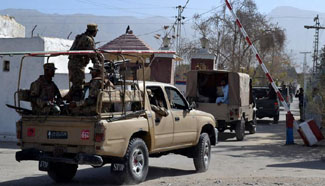NEW YORK, Oct. 26 (Xinhua) -- Antarctica is melting faster than expected, which is blamed on warmer ocean water, says a new study.
The study, published in the journal Nature Communications, focused on the Smith, Pope and Kohler glaciers, which are supported by the Dotson and Crosson ice shelves from beneath.
A significant portion of Antarctica is now subject to "intense unbalanced melting," said the authors of the study.
Scientists believe that rising water temperature may be helping to weaken ice shelves by seeping into the cavities beneath them and lapping up against the exposed ice, the Washington Post reported.
Ice shelves are permanent floating sheets of ice that connect to a landmass, which are only found in Antarctica, Greenland, Canada and the Russian Arctic.
If an ice shelf thins or breaks, the glacier behind it begins to pour ice into the ocean and retreat inland, it reported.
The warm water circulating beneath the ice shelf has caused faster melting of ice in Antarctica, which is most pronounced from 2002 to 2009, a team from the NASA's Jet Propulsion Laboratory (JPL) said.
The more the bottom of the shelves melt, the more ice is exposed to warm water, said Ala Khazendar, a geophysicist and polar expert at JPL.
Scientists fear that at some point, the shelves will collapse and Antarctica's glaciers will flow into the sea, said a NPR report.
"But we don't know whether or when this will happen and that's the scary part," Khazendar was quoted by the NPR as saying.










